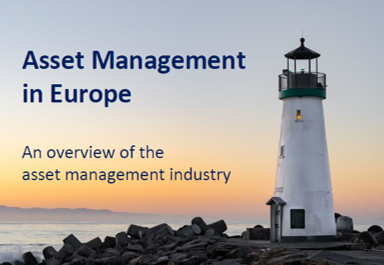Sustainable Finance
The asset management industry plays a key role in meeting the objectives of the European Green Deal to make the EU’s economy sustainable. Our members integrate ESG considerations across their risk management processes and investment decisions. They develop sustainable investment products and foster transparency to fight greenwashing. This increases choice, trust and, in turn, retail investors’ participation. Overall, such efforts mobilise capital towards a fair and just transition to a climate-neutral economy by 2050.
EFAMA actively contributes to the development and implementation of EU’s sustainable finance initiatives. Among them are a comprehensive transparency framework for financial market participants, standards and labels for green financial products, classification of green economic activities and policies enhancing corporate sustainability reporting.
EFAMA's reply to the EC's public consultation on the revision of the Non-Financial Reporting Directive
Joint industry letter - Call for a centralized register for ESG data in the EU
Our associations are committed to supporting the transition to a more sustainable economy and
to tackling climate change that we consider a priority. We strongly support the EU objective of
transforming Europe into the first climate-neutral continent in the world by 2050 and are ready
to contribute as representatives of the financial sector.
Feedback on the development of delegated regulation on climate change mitigation & adaptation
ISSB's Exposure Drafts on Sustainable Reporting Standards
EFAMA shares the urgent need to improve the consistency and comparability of sustainability reporting at a global level. Therefore, we welcome the opportunity to respond to the ISSB consultation on the Exposure Drafts on “General Requirements for Disclosure of Sustainability Related Financial Information” (IFRS S1) and on “Climate-Related Disclosures” (IFRS S2).
EFAMA highlights that alignment and interoperability with global standards are key
EFAMA has stressed that global alignment of sustainability reporting standards will be necessary to ensure clarity for investors as Europe moves towards a zero emissions economy by 2050.
PTF-ESRS consultation survey on draft European Sustainability Reporting Standards
EFAMA strongly supports the initiative carried out by EFRAG with the publication of the Exposure Drafts on the European Sustainability Reporting Standards (ESRS). The Exposure Drafts provide key elements framing the architecture of reporting requirements and clarifying the content and key concepts of CSRD. The resulting data will be of crucial importance for investors and for achieving the EU objective to transition towards a zero emissions economy by 2050.
Annual Review June 2019-June 2020
"It gives me great pleasure to provide you with an overview of our activities since our Annual General Meeting in Paris last year. While we were very much looking forward to hosting you all in Brussels this week, the current crisis and associated travel restrictions has forced us to improvise and turn our meeting into a virtual AGM.
3 questions to Thierry Bogaty on the EU Ecolabel for retail financial products
Q #1 Can the EU Ecolabel for retail financial products help channel individual investors’ savings into environmentally sustainable projects?
A well-designed EU Ecolabel has the potential to provide clear guidance on the financial products retail investors can invest in if they wish to support environmentally sustainable projects and activities - in line with the EU Taxonomy Regulation. The European Commission wants to create a trusted and verified label for retail investors, who would benefit from better comparability of financial products.
Asset Management Report 2019
The EFAMA Asset Management in Europe report aims at providing facts and figures to gain a better understanding of the role of the European asset management industry. It takes a different approach from that of the other EFAMA research reports, on two grounds. Firstly, this report does not focus exclusively on investment funds, but it also analyses the assets that are managed by asset managers under the form of discretionary mandates. Secondly, the report focuses on the countries where the investment fund assets are managed rather than on the countries in which the funds are domiciled.

































